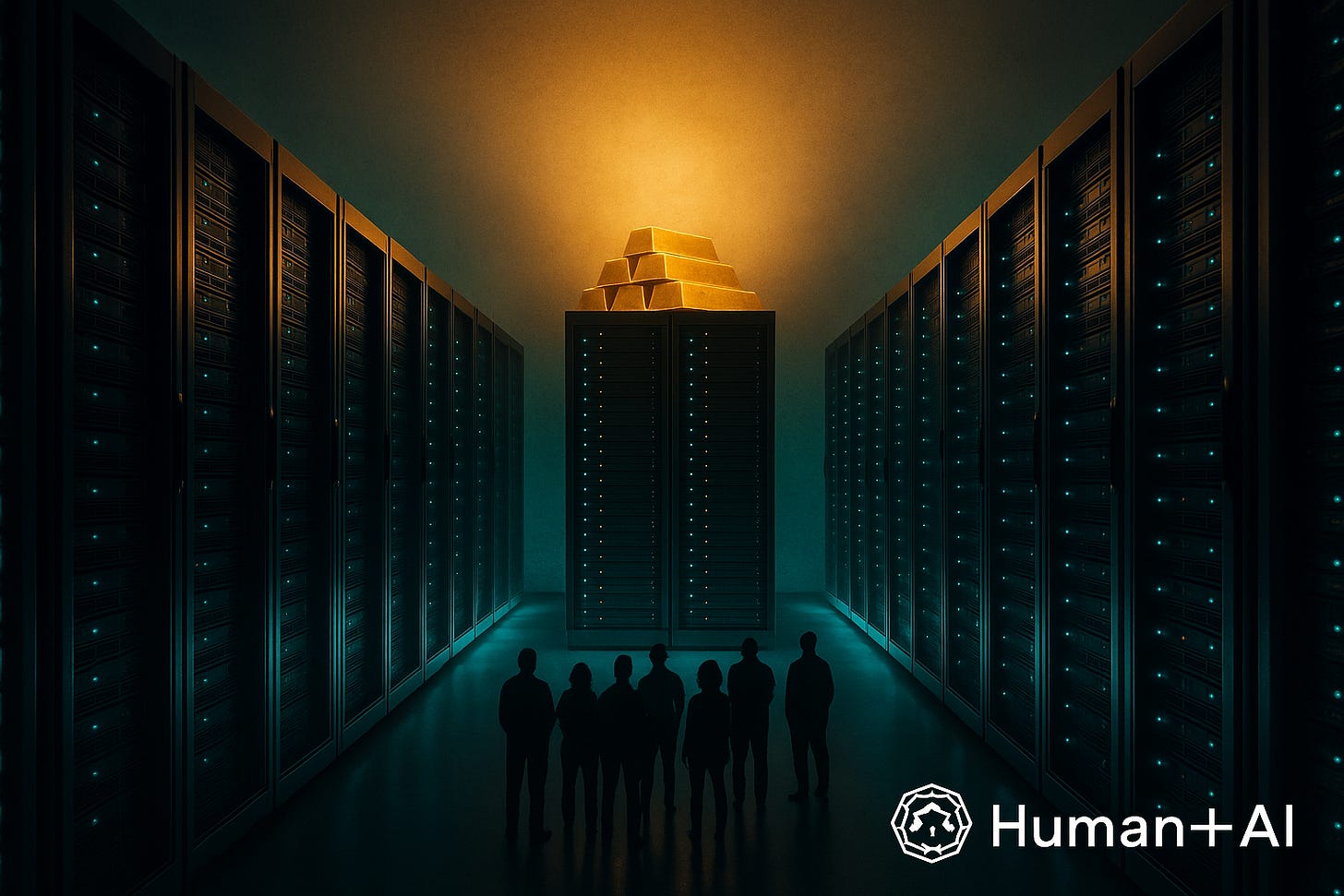How Larry Ellison cashed in on the AI boom
Oracle's co-founder briefly passed Elon Musk as the world's richest person last week by renting servers to the people building AI.
Larry Ellison once begged NVIDIA’s Jensen Huang for more GPUs for his data centres. “Please,” he reportedly said, “take our money”.
Larry Ellison didn’t invent AI. He’s not coding late into the night, creating the next viral chatbot. He’s not evangelizing AI as the path to immortality. What Ellison did, quietly and with remarkable precision, was position himself as the landlord of the future.
Last week, the Oracle co-founder briefly overtook Elon Musk as the richest person alive. His wealth ballooned by nearly $100 billion in a single day, because he sold something everyone else suddenly needed: server space. Oracle’s cloud contracts with OpenAI and other companies now total more than $300 billion.
Altogether, Oracle has $455 billion in outstanding contract revenue, four times higher than a year ago, and executives expect that figure to exceed $500 billion in the coming months.
The AI landlord
The $300 billion in new cloud contracts include a blockbuster deal with OpenAI. The news sent Oracle’s stock up nearly 36 percent in a single day, the biggest gain in its history.
Oracle now runs a rapidly expanding global network of cloud data centres, many filled with scarce NVIDIA GPU clusters that AI firms are desperate to access. Through multi-cloud partnerships, the company has embedded its infrastructure into enterprise ecosystems alongside Microsoft, Amazon, and Google.
Ellison’s rise shows that the most money in AI isn’t in apps, it’s in compute. OpenAI, Meta, NVIDIA, and Musk’s xAI are all Oracle customers. Ellison’s fortune is now built on the scarcity of compute.
What comes next
Data centres, chips, and long-term contracts are all shaping who controls the AI economy. For every professional watching AI reshape their industry, the lesson is clear: watch the supply chain.
Ellison may not be in the running for long. Musk’s net worth still hovers above $384 billion. Zuckerberg’s Meta is betting big on AI assistants. But for a moment, the richest man alive wasn’t the one promising to invent the future, he was the one selling the server space for it.
Help train this newsletter's neural networks with caffeine!
⚡️ Buy me a coffee to keep the AI insights coming. ☕️
AI in the news
85% of Canadians want government regulation for AI, poll shows (Globe and Mail) A new poll shows 85% of Canadians support government regulation of AI, with majorities citing concerns about privacy, job losses, dependency, and even cognitive decline from overuse. Despite these fears, AI adoption is rapidly rising. 57% report using AI tools, up from 30% in early 2024, and most users rate their experiences positively, leaving Canadians divided on whether AI is ultimately good or bad for society.
AI’s prophet of doom wants to shut it all down (New York Times) Eliezer Yudkowsky, co-founder of the Machine Intelligence Research Institute, has spent two decades warning that advanced AI will almost certainly wipe out humanity, a message he amplifies in his new book If Anyone Builds It, Everyone Dies. Though critics dismiss him as extreme, his ideas have deeply influenced AI leaders and sparked the Rationalist movement. He continues to push for shutting down AI development entirely, arguing that no potential benefit is worth the existential risk.
AI fuels false claims after Charlie Kirk's death, CBS News analysis reveals (CBS) In the wake of Charlie Kirk’s killing, AI tools like Grok, Perplexity, and Google’s AI Overviews spread false claims, misidentified suspects, and generated misleading images and videos that fuelled conspiracy theories across social media. Experts warn that because generative AI predicts likely responses rather than verifying facts, people may mistakenly trust its outputs as more reliable than human sources, worsening the spread of misinformation during breaking news events.





